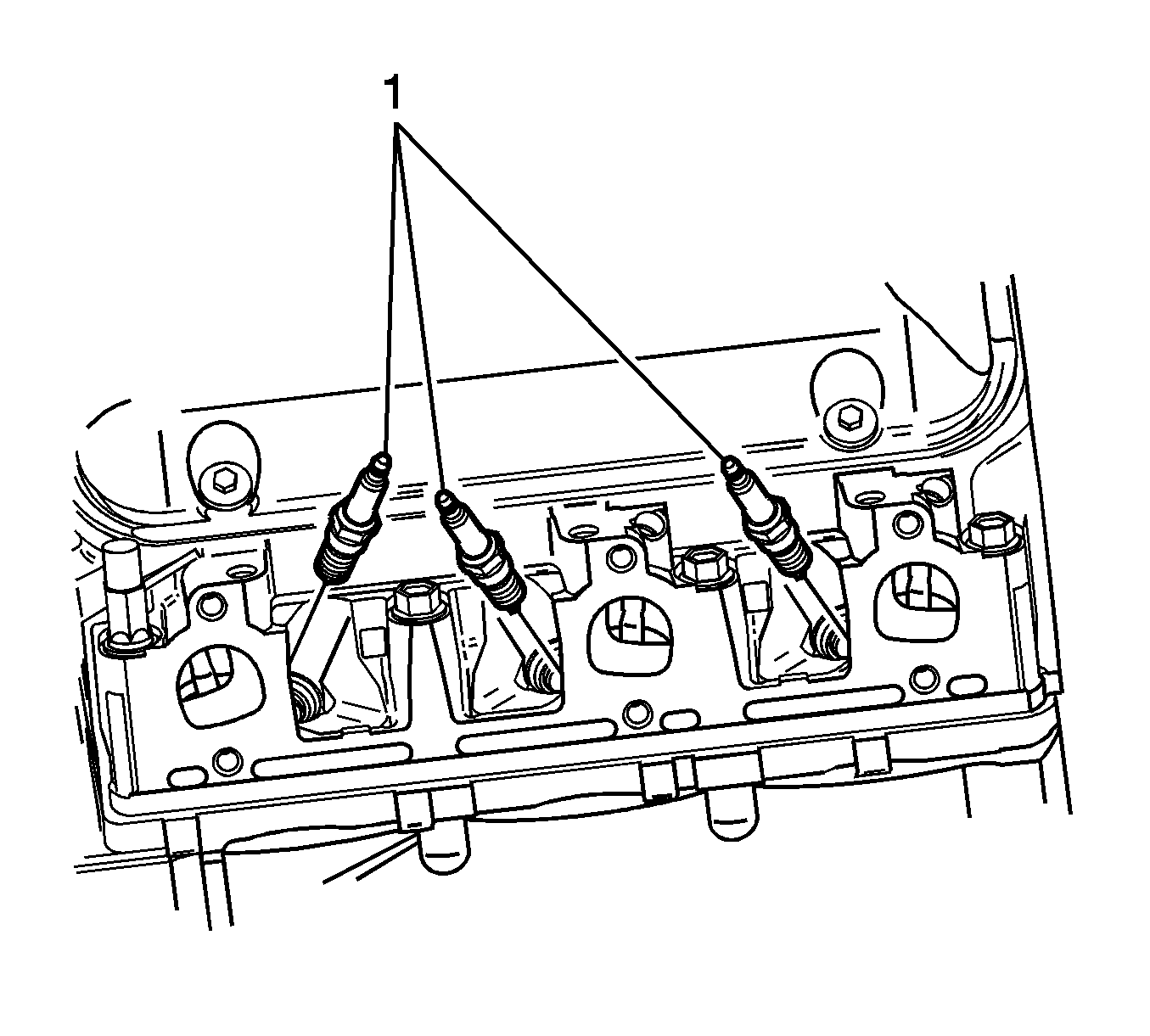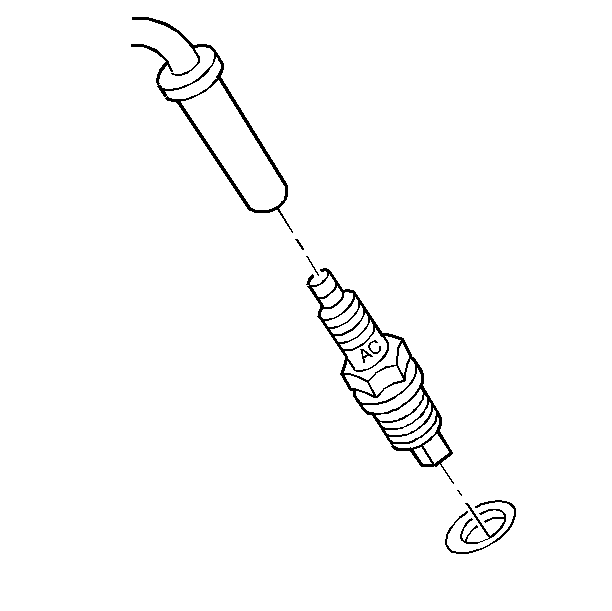Removal Procedure
Caution: Observe the following service precautions:
• Allow the engine to cool before removing the spark plugs. Attempting to remove spark plugs from a hot engine can cause the spark plugs to seize. This can damage the cylinder head threads. • Clean the spark plug recess area before removing the spark plug. Failure to do so can result in engine damage due to dirt or foreign material entering the cylinder head, or in contamination of the cylinder head threads. Contaminated threads may prevent
proper seating of the new spark plug. • Use only the spark plugs specified for use in the vehicle. Do not install spark plugs that are either hotter or colder than those specified for the vehicle. Installing spark plugs of another type can severely damage the engine.
- Remove the spark plug wires from the spark plugs. Refer to Spark Plug Wire Replacement.
- Remove the spark plugs (1) from the cylinder head.

Installation Procedure
- Gap the spark plugs to the specifications. Refer to Ignition System Specifications.
- Install the spark plugs to the cylinder head.
- Install the spark plug wires to the spark plugs. Refer to Spark Plug Wire Replacement.
Caution: Check the gap of all new and reconditioned spark plugs before installation. The pre-set gaps may have changed during handling. Use a round feeler gage to ensure an accurate check. Installing the spark plugs with the wrong gap can cause poor engine performance and may even damage the engine.
Caution: Refer to Component Fastener Tightening Caution in the Preface section.

Caution: Be sure plug threads smoothly into cylinder head and is fully seated. Use a thread chaser if necessary to clean threads in cylinder head. Cross-threading or failing to fully seat spark plug can cause overheating of plug, exhaust blow-by, or thread damage. Follow the recommended torque specifications carefully. Over or under-tightening can also cause severe damage to engine or spark plug.
Note: ONLY when the cylinder head is replaced with a NEW cylinder head, the FIRST time the spark plugs are installed, tighten the spark plugs to 20 N·m (15 lb ft). All subsequent tightening of the spark plugs, tighten to 15 N·m (11 lb ft).
Tighten
Tighten the spark plugs to 15 N·m (11 lb ft).
